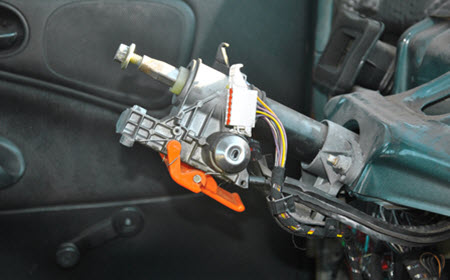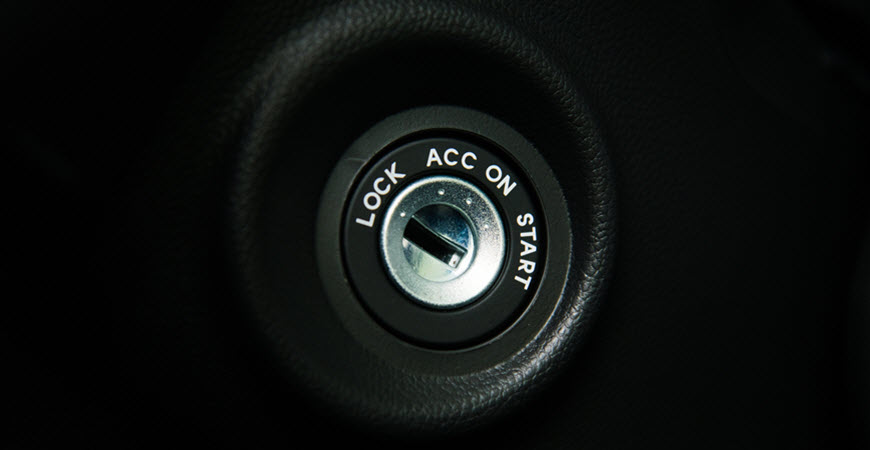Porsches are known for being sleek, powerful vehicles, but if your Porsche’s ignition lock fails, you won’t be able to access any of this power. The ignition lock, which is the mechanism that you insert your key into every time you drive your vehicle, is vital to your vehicle’s functioning. Unfortunately, it is also prone to failure.
If you want to make sure that your vehicle is able to run you whenever you need it too, strive to prevent the three main causes of ignition lock failure: excessive wear and tear, key malfunctions, and interlock solenoid damage.
Extreme Wear and Tear
You utilize your Porsche’s ignition lock every time you drive your vehicle. If you did not insert your key into the ignition lock and turn it, your vehicle would never start! Because the ignition lock is used so frequently, it is very susceptible to wear and tear.
More specifically, over time, the grinding of the key against the ignition lock’s tumblers may wear this component down to the point that the tumblers cannot properly press up against the key. If this happens, the key will not fit correctly in the lock. This will keep the engine from starting.
Although all ignition locks may suffer from wear and tear, the effects of such a problem can be enhanced by certain outside factors. For example, adding heavy keychains to your vehicle’s key can greatly increase the amount of stress put on your Porsche’s ignition lock. In this instance, when you insert your key into your vehicle’s ignition lock, the keychains will pull down on the key. This will create extra pressure on the tumblers and may cause them to warp. So while keychains may make your keyring easier to find, it’s best to minimize the accessories attached to your car keys.
Key Malfunctions
Much like wear and tear to the ignition lock’s tumblers, wear and tear to your vehicle’s key can also contribute to ignition lock failure. For example, if your key becomes warped or twisted, it may not fit correctly against the ignition lock’s tumblers. This will prevent the vehicle from starting, as all of the tumblers need to be in the correct position for the ignition lock to turn.
Additionally, scratches and chips on your Porsche’s key may cause severe damage to the ignition lock. More specifically, if your key suffers from surface damage, it may produce small metal chips or flakes, which can easily enter your vehicle’s ignition lock and jam up the tumblers. If you notice any damage to your car keys, you might want to refrain from driving your vehicle until you’ve gotten a replacement key.
Fortunately, the above problems can typically be avoided by being gentle with your key. More specifically, if you want your key to remain in good shape, you should never force it into the ignition lock. Furthermore, you should never attempt to turn it if it gets stuck in the ignition lock, as doing so might make the situation worse. By following these steps, you should be able to prevent most forms of key damage.
Interlock Solenoid Damage
Finally, a third common cause of ignition lock failure is interlock solenoid damage. The interlock solenoid is the mechanism that allows you to switch your vehicle out of park and into drive, and it only works if the ignition is on and the brake is in use. If this component fails, or if the circuit between it and the ignition lock becomes damaged, the ignition lock may also malfunction. If you notice that your Porsche’s ignition lock appears to be in perfect condition but isn’t working properly, the problem may lie with the interlock solenoid.
Solving the Problem
Regardless of what caused the problem, ignition  lock failure is a significant issue that you should not attempt to fix on your own. Instead, call the experts at DART auto. Our experienced mechanics have the tools and know-how necessary to fix your Porsche’s ignition lock safely and efficiently. We are proud to serve customers located in Englewood, Littleton, Centennial, and Denver, CO, so if you’re looking for help with keeping your European vehicle in great shape, give us a call today to find out what we can do for you.
lock failure is a significant issue that you should not attempt to fix on your own. Instead, call the experts at DART auto. Our experienced mechanics have the tools and know-how necessary to fix your Porsche’s ignition lock safely and efficiently. We are proud to serve customers located in Englewood, Littleton, Centennial, and Denver, CO, so if you’re looking for help with keeping your European vehicle in great shape, give us a call today to find out what we can do for you.
